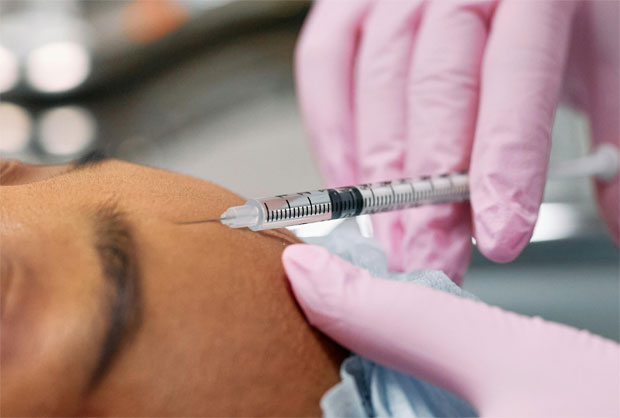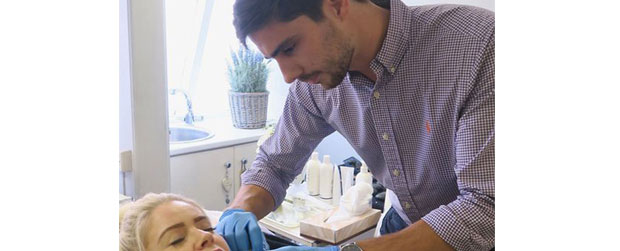UK Consumers: Stay Safe from Counterfeit Botox with Expert Advice – What You Need to Know

Stay Safe from Counterfeit Botox – What You Need to Know
In light of recent reports from the United States where counterfeit Botox has spread across multiple states, UK consumers should remain vigilant when considering Botox treatments. The risks associated with fake Botox are not just limited to ineffective results but can lead to severe health issues, including blurred vision, difficulty swallowing, and even hospitalizations.

This is a guest article by Dr Ryan Taylor from Norwich Aesthetics Clinic with expert advice. Here’s what you need to know to protect yourself.
Understanding the UK’s Legal Landscape
As of June 2023, the UK has no laws preventing anyone, regardless of medical qualifications, from administering Botox. This alarming lack of regulation means that individuals with little or no training can legally perform these procedures. However, it’s important to note that Botox and other muscle-freezing toxins like Azzulure and Bocouture are classified as prescription-only medicines. This means that they can only be prescribed and administered by qualified prescribers, such as doctors, dentists, or nurses with appropriate credentials.
In some cases, non-medical professionals can perform Botox injections, but only if they work alongside a prescribing clinician. The prescriber must be present during the consultation and is responsible for the outcome of the procedure. However, because doctors and nurses are unlikely to take responsibility for non-medical injectors, this setup is rare and often not worth the risk.
The Dangers of Counterfeit Botox
The spread of counterfeit Botox poses significant risks. In the US, reports have linked fake Botox to serious health complications, including botulism-like symptoms. With the UK’s minimal regulatory oversight, the possibility of counterfeit products entering the market is a real concern. These products might be sourced from unregulated manufacturers, lacking the rigorous safety checks that reputable brands undergo.

Key Questions to Ask Your Practitioner
To protect yourself, it’s essential to carefully vet any practitioner offering Botox treatments. Here are some crucial questions to ask:
- What are your qualifications and experience?
- Not all Botox providers have the necessary training or experience. Ensure that your practitioner is a qualified prescriber or works under the direct supervision of one. Ask about their experience, specifically how long they’ve been performing Botox treatments and how frequently they do so.
- What brand of Botox do you use?
- There are multiple brands of Botulinum Toxin, but not all are equal in terms of safety and effectiveness. Some practitioners may use cheaper, unlicensed alternatives that can pose risks. Always inquire about the brand used and why they chose it. Trusted brands like Allergan’s Botox have established safety records and are widely recognized for their reliability.
- Is the prescriber present?
- If the injector is not a prescriber, verify that a qualified prescriber is involved and present during your consultation. This is crucial for ensuring that the treatment is safe and medically supervised.
- Can I see the product packaging?
- Legitimate practitioners should be transparent about the products they use. Ask to see the original packaging to verify the authenticity of the Botox. This can help you avoid counterfeit products.
- Can you provide reviews and before-and-after photos?
- Look at patient reviews and before-and-after photos to assess the practitioner’s work. Ensure the images are of actual patients they’ve treated, and be cautious if they only use manufacturer-provided images.
Warning Signs to Watch For
Stay alert to potential red flags, including:
- Unusually low prices: If the cost of the treatment is much lower than average, it could indicate the use of counterfeit or substandard products.
- Non-medical settings: Botox should be administered in a professional, clinical environment. Avoid treatments offered in unconventional settings like homes or salons.
- Lack of transparency: If a practitioner is reluctant to discuss their qualifications, the products they use, or show you the packaging, consider it a serious red flag.
Conclusion
With the current lack of strict regulations in the UK, it’s vital for consumers to be cautious when seeking Botox treatments. Ensure your practitioner is a qualified prescriber, verify the authenticity of the products used, and ask thorough questions about the practitioner’s qualifications and experience. Taking these precautions can help you avoid the dangers associated with counterfeit Botox and unqualified providers, ensuring a safer and more effective treatment.
Guest Article.




